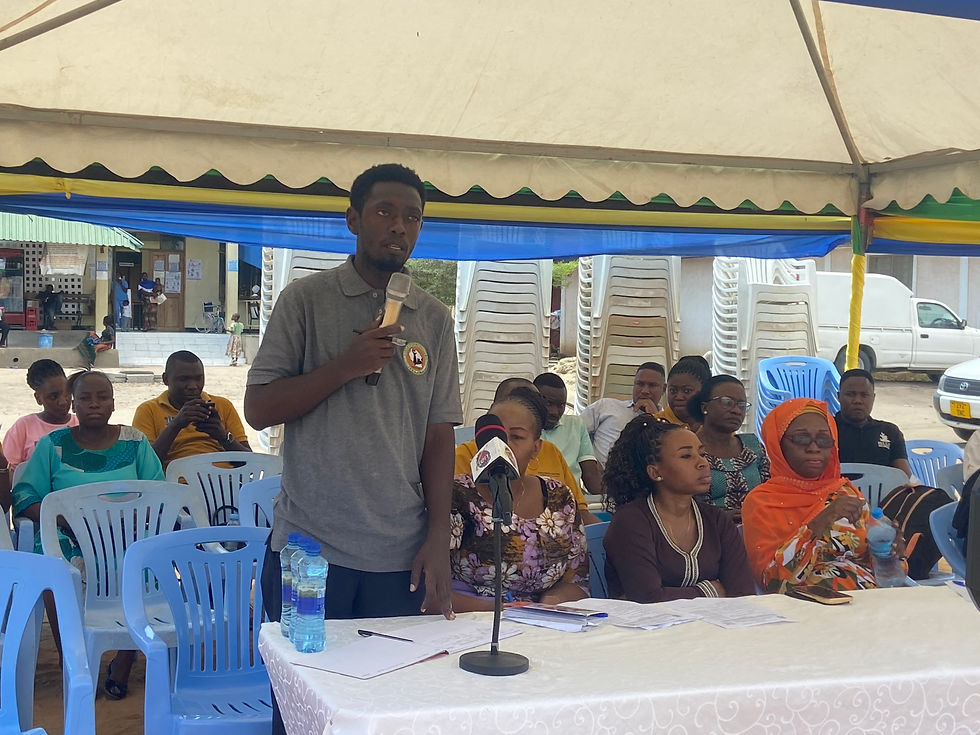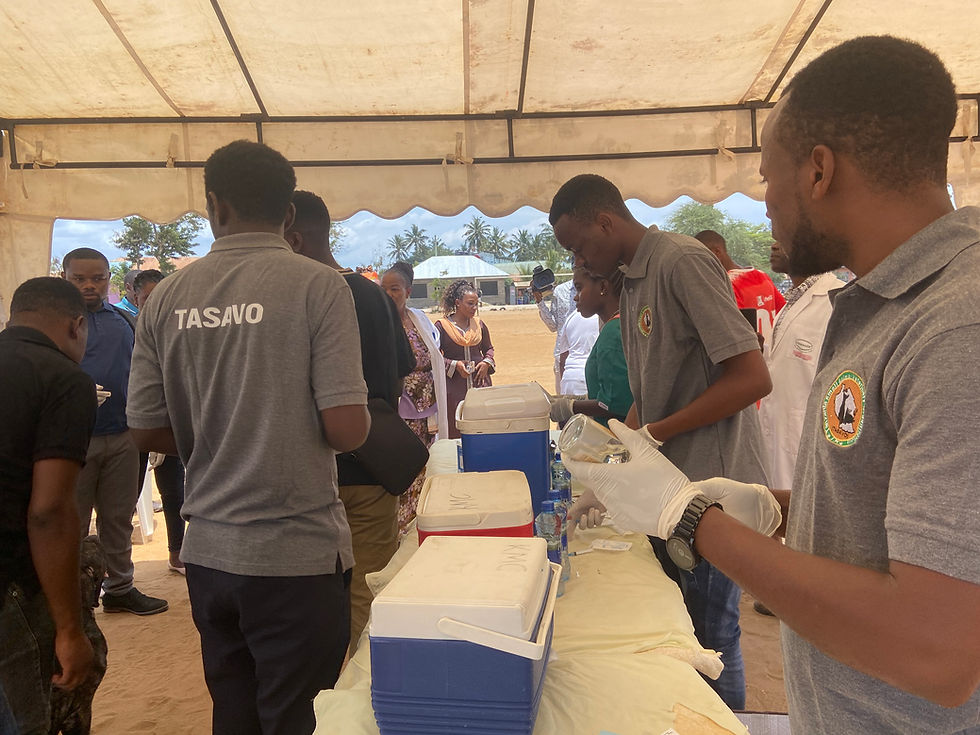TASAVO's (Tanzania) Spay/Neuter + Education -success & some surprises
- Animal-Kind International

- Oct 19, 2023
- 3 min read
Tanzania Small Animal Veterinary Organization started their Trap, Neuter, Vaccinate, & Return project (1 of our 8 2023 Africa-Based Animal Welfare Organization Grant Program projects) with weekly spay/neuter surgeries during all 4 weeks in September. And then, on September 28, for World Rabies Day, they joined in a special event in Dar es Salaam, with other animal welfare organizations, to de-worm cats and dogs, vaccinate them against rabies, and continue their spay/neuter work.
In September, TASAVO TNVR'd 4 female dogs, 3 male dogs, 13 female cats, and 16 male cats, and all 36 were vaccinated against rabies and de-wormed (some pictures below).






Community education is always a major part of TASAVO's TNVR efforts. We often think that people accept spayed/neutered cats and dogs back to the community because cats are good at keeping rodents and snakes away and dogs are a good early warning for thieves. But that's not always the case, as TASAVO has found.
Vet surgeon Dr Thomas Mayani (TASAVO Treasurer and Spay/Neuter Coordinator) told us,
"We always face negative perceptions when trapping cats. People want the cats to be taken forever and never come back. We use much time trying to educate the people and find homes for the neutered cats as much as possible."
Still, "it’s a big problem because people in restaurants and apartments get a huge relief when cats are taken for sterilization and wish they never come back. We face a hard task of educating the community before even trying to start trapping them."
"Yes you would expect people to love having sterilized dogs and cats around them as they are not noisy anymore especially when females are no longer on heat BUT it is completely the opposite. They will report to politicians that the stray dogs and cats are rabid and need to be killed though in fact they are not. They are not even aggressive. So now, when politicians try to solve those problems they will consult us first."

TASAVO works hard to ensure that dogs and cats who they've sterilized remain safe in their communities. There's no sense in spending time, effort, and money on an animal who will end up poisoned by community members--not to mention wanting to do their utmost to prevent such cruelty.
That's why TASAVO spends so much effort educating people about the benefits of s/n and our responsibilities toward cats and dogs; identifying people to watch over the colonies of stray cats and community dogs; and building connections among community members, local leaders and politicians. Everyone has a role to play in making sure community cats and dogs remain safe! And eventually, we believe everyone will come to feel the joy of befriending a cat and dog.
World Rabies Day in Dar es Salaam showed us what is possible.
On September 28, World Rabies Day, TASAVO vaccinated and de-wormed 6 cats and 206 dogs and continued their s/n efforts. A full week of awareness raising prior to World Rabies Day resulted in a great turn-out! (Thanks also to Every Living Thing for organizing the event).
Many TASAVO volunteers participated: the chairperson of TASAVO, Dr Alex Chang’a, coordinated all events, while Dr Manyani coordinated s/n and vaccination activities; Dr Ruheta, Dr Mroso, and Dr Lukwara, who have all been involved in AKI's TNVR grant project, and final year vet students, Zilaje Kanyana, Adela Kamala, Nancy Riwa, David, and Brigita Masinde, all participated.



TASAVO welcomes vet students and vets from across Tanzania to help them spay/neuter, educate and raise awareness of the importance of being kind to and responsible for animals. With so much local power and expertise, we believe that TASAVO will have such a positive effect --and the AKI grant is just the beginning!




